Why Israel Is a Party to the Conflict, and Ukraine Is an Aggressor Alongside Russia
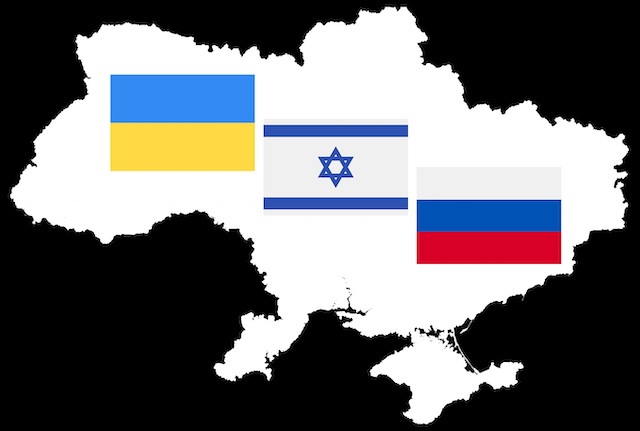
The Ukrainian people formalized an act of self-determination in 1990–1991, when the Declaration of State Sovereignty explicitly established that Ukraine is a sovereign national state and that the bearer of sovereignty in the Republic is the people of Ukraine.
At the same time, the Declaration had a dual structure: in the section “Self-determination of the Ukrainian Nation” the national-ethnic component was enshrined — the act of self-determination of Ukrainians and the establishment of Ukraine as a national state, while in the section “Popular Sovereignty” the civic component was set out, where the people of Ukraine were defined as the totality of all citizens of Ukraine of all nationalities.
The 1996 Constitution enshrined in Article 5 the provision that the people are the sole source of power and sovereignty, but without s ... Read more ⇢
Apartheid of Ukrainians and the Hidden Interethnic Conflict
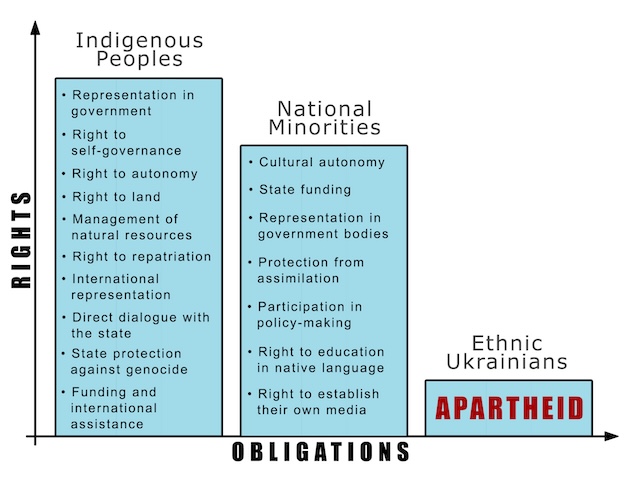
Under the cover of external aggression, a legal regime was established in Ukraine that exhibits features of institutionalized apartheid and interethnic conflict. The largest ethnic group — Ukrainians — has been stripped of status, collective rights, mechanisms of international protection, and even the possibility of legal self-preservation. These changes were deliberately enshrined in national legislation under martial law, indicating a conscious shift in focus from external threat to internal reconfiguration of the sovereign subject.
While formally appealing to the idea of national unity, the state manipulates the concept of “the people” by exploiting constitutional ambiguity between the collective sovereign and the totality of citizens. Depending on political expediency, the authorities arbitrarily alternate between these constructs, excluding Ukrainians from all forms of ethnically defined legal subjectivity. This subst ... Read more ⇢
Interethnic Conflict of Interests
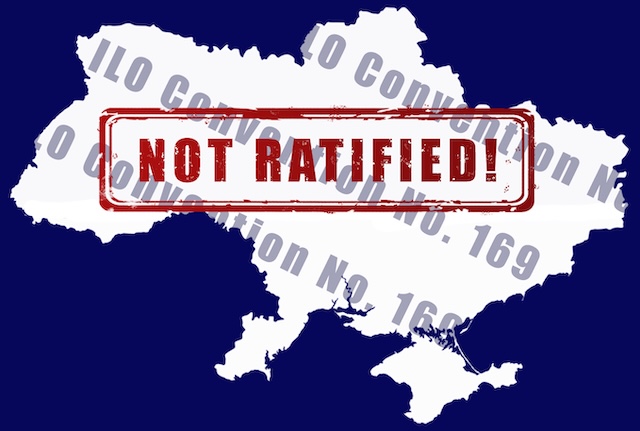
One of the clearest pieces of evidence demonstrating the formal and superficial nature of Ukraine’s Law No. 1616-IX “On Indigenous Peoples of Ukraine” is the fact that, during its adoption, the state employed terminology and rhetoric borrowed from the International Labour Organization’s Convention No. 169 — without actually ratifying the Convention. This creates a fundamental contradiction: Ukraine adopted the external framework of international law but refused to accept its binding obligations.
What is ILO Convention No. 169 and why is it essential?
It is the only universal international convention that protects the collective rights of indigenous peoples. Adopted in 1989, it is considered the principal legal instrument for safeguarding:
– the right to self-determination;
... Read more ⇢
Chronology of the Nullification and Displacement of Ethnic Ukrainians from Ukraine’s Legal Framework
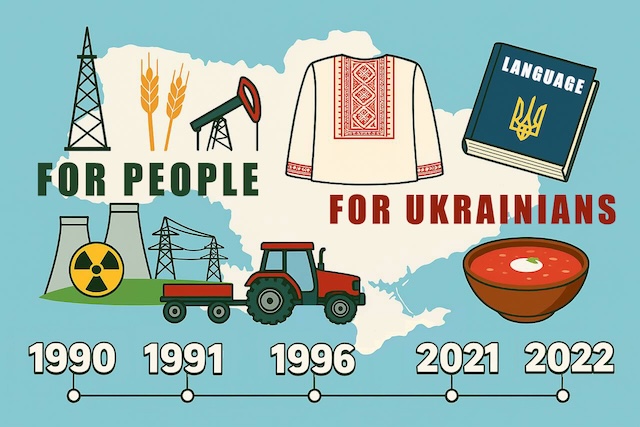
The fundamental misconception of the international community, including Ukrainians themselves, lies in the belief that cultural attributes were perceived as proof of the existence of a people. However, the right to speak the Ukrainian language is not equivalent to the status of a people in the legal sense.
For 21 years, from 1996 to 2021, Ukraine built a civic society in which the concept of “people” was interpreted universally — as the totality of citizens without ethnic distinctions.
But in 2021 the model of state organization was once again restructured — this time along ethnic lines. Certain groups received a legally enshrined status of “people” with all collective rights — to land, resources, self-government, and sovereignty. At the same time, ethnic Ukrainians were left only with language, borshch, and the vyshyvanka — cultural symb ... Read more ⇢
No People, no Duty - Why mobilizing Ukrainians may be a Crime
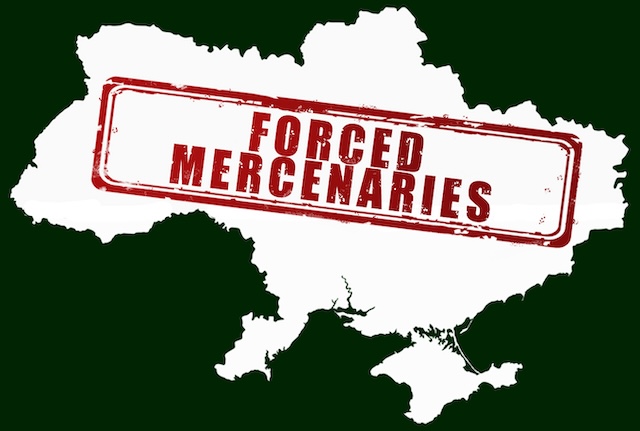
1. Linguistic and Legal Clarification
The Meaning of “Narod” in Slavic Traditions vs. “People” in Western Legal Culture
In Anglo-Saxon legal and constitutional traditions, the word “people” is semantically broad and historically flexible. It can refer both to the entire population of a country (“the people of France”, “the American people”) and to a sovereign political subject, endowed with authority and collective rights (“We the People” of the United States Constitution).
This semantic fusion emerged from the Enlightenment political philosophy of the 17th–18th centuries, in which sovereignty was transferred from monarchs to “the people” as an abstract political entity. The term became a legal placeholde ... Read more ⇢
Exclusion of ethnic Ukrainians from the source of Ukraine’s sovereignty
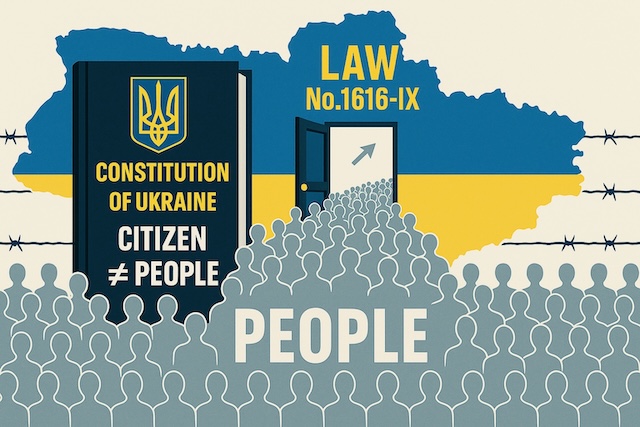
According to the Law of Ukraine No. 1616-IX “On Indigenous Peoples of Ukraine” dated July 1, 2021, ethnic Ukrainians are not included in the list of indigenous peoples. This law, introduced by President Volodymyr Zelensky as urgent, granted indigenous status to three ethnocultural groups — Crimean Tatars, Krymchaks, and Karaites — without any limitations regarding their population size, place of residence, or citizenship, extending their rights across the entire territory of Ukraine.
At the same time, the titular nation — ethnic Ukrainians — as well as autochthonous Ukrainian subethnic groups such as Boykos, Hutsuls, Lemkos, Volynians, Podolians, Slobozhans, and Polishchuks, were entirely excluded from the list of indigenous peoples and from the system of collective rights. None of these groups received legal recognition as a people, despite their deep historical rootedness, unique ... Read more ⇢
Evidence of the systematic Genocide of the Ukrainian people
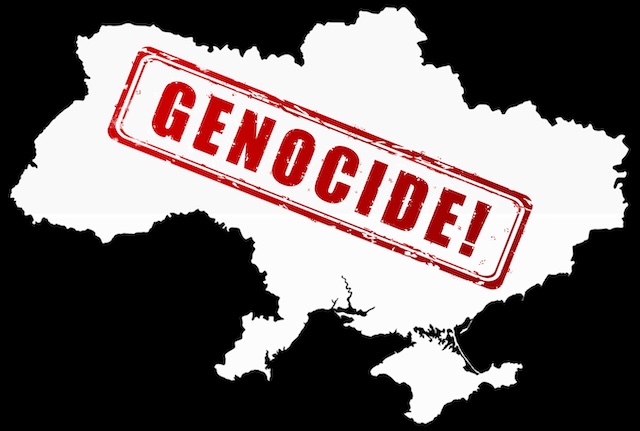 v1.2
v1.2
I. International Complicity in the Organization of Internal Terror in Ukraine
The European Union, the United States of America, the United Kingdom, Canada, Australia, Switzerland, Japan, and other donor states bear direct international legal responsibility for complicity in organizing large-scale internal terror on the territory of Ukraine. By continuing to provide multibillion-dollar unconditional funding to the Ukrainian regime in the context of official derogation from its human rights obligations, these states effectively ensure the uninterrupted operation of a repressive apparatus committing systematic international crimes.
Part of the donor countries’ funds is directed toward financing:
-
Forced mobilization of citizens, including elements of violence,
The war through the eyes of a Ukrainian - Legal arguments against State repressions
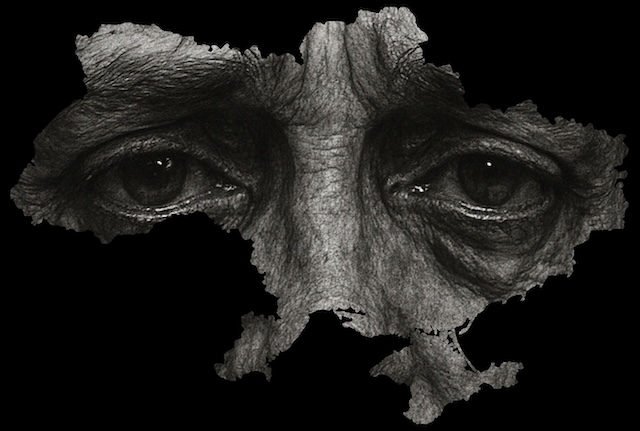
v4.7 - to be updated...
This document provides a comprehensive legal and factual analysis of systemic human rights violations and institutional repression in Ukraine between 2022 and 2025. Based on constitutional law, international treaties, and documented cases, it demonstrates how the Ukrainian government has employed selective conscription, suppression of dissent, and extrajudicial measures under undeclared state of war conditions. The report highlights the use of internal structures - including the Territorial Centers of Recruitment (TRC), the Security Service of Ukraine (SBU), and other state organs - to enforce coercive policies that undermine civil liberties, democratic governance, and legal protections.
The document is not written by a legal professional, but by a Ukrainian citizen directly affected by these policies. Its purpose is twofold:
(1) to raise awareness ... Read more ⇢


